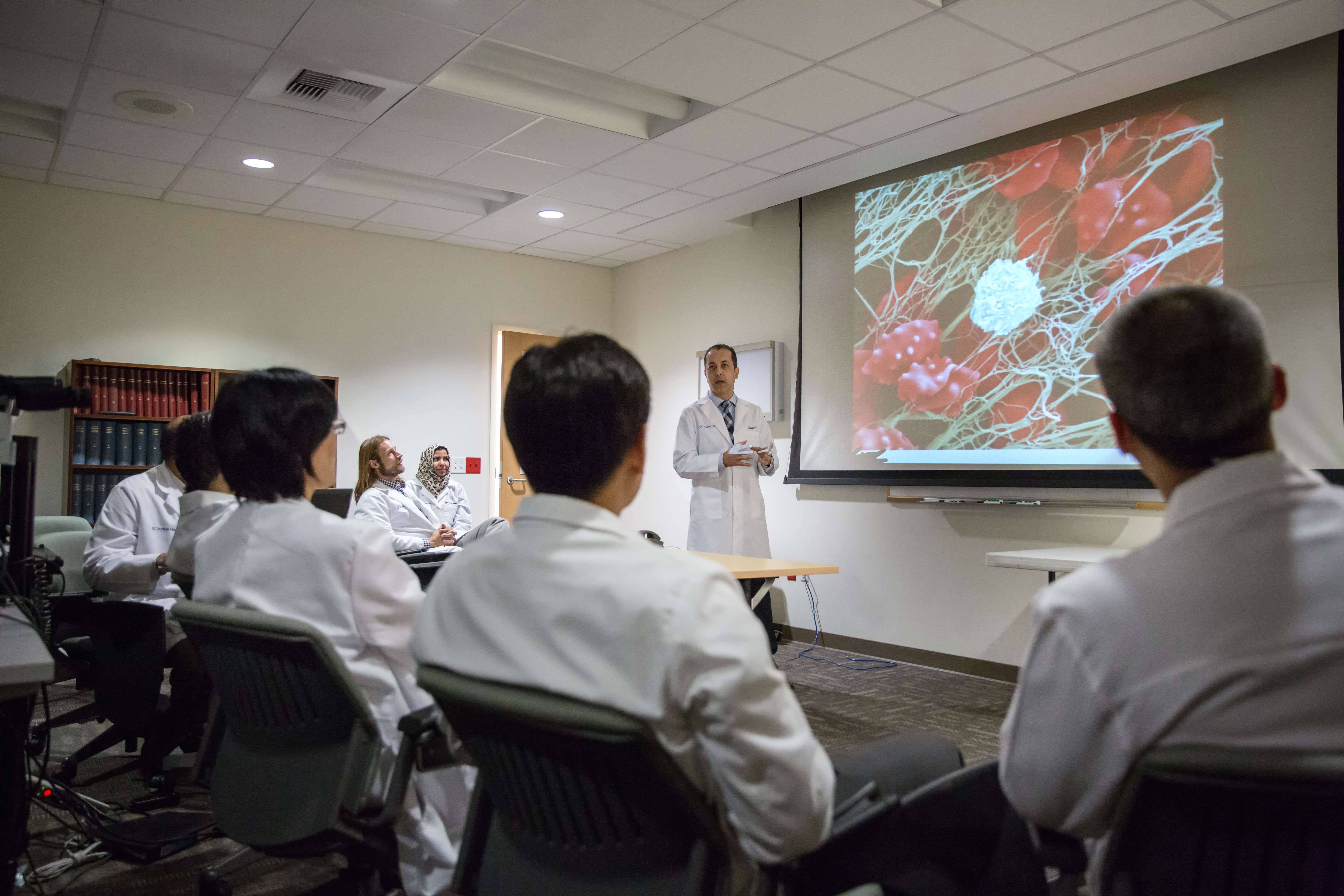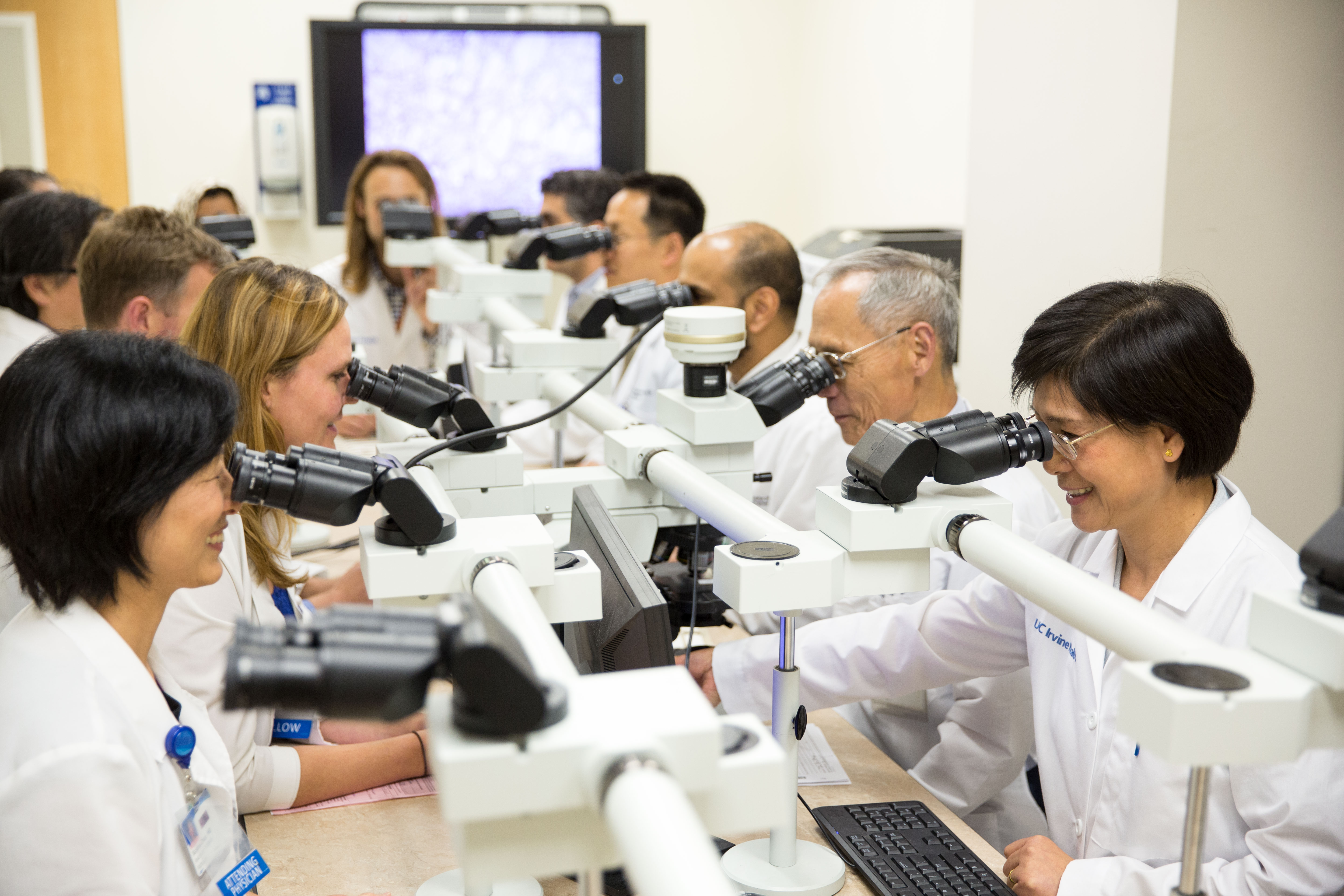 |
Curriculum

For those pursuing a standard program leading to Board eligibility in both anatomic and clinical pathology (AP/CP), it is necessary to complete a 48-month program. This program incorporates the American Board of Pathology (APB) required minimal 18 months of anatomic pathology and 18 months of clinical pathology.
The curriculum will consist of rotations at UC Irvine Medical Center, VA Long Beach Medical Center (LBVA), Orange County Coroners Office, Children’s Hospital of Orange County (CHOC) and the Long Beach Memorial Medical Center (LBMMC).
Anatomical pathology consists of 24-month core rotations of integrated activities in autopsy, surgical pathology, cytopathology, neuropathology and forensic pathology at each of the institutions and the Orange County Coroner’s Office. It includes 16-18 months in surgical pathology with incorporated autopsy, three months in cytopathology, one month in neuropathology and one month at the Coroner’s Office.
Clinical pathology consists of 18-month core rotations including four months of hematopathology, with the option to perform bone marrow biopsies, three months each of blood banking/transfusion medicine, chemical pathology, microbiology and one month each in informatics, cytogenetics, molecular diagnostics, laboratory administration and CP electives.
An additional six months of electives in anatomic or clinical pathology and research are needed to complete the combine AP/CP training.
In addition, an anatomic pathology only (AP only) curriculum is offered and usually consists of 30 months of core anatomic pathology and 6 months of electives, which may include research. This curriculum is best suited to those pursing careers in academic or forensic pathology.
Successful completion of this curriculum will provide the resident with eligibility to take the Anatomic and Clinical Pathology or Anatomic Pathology only Board exam.
Research
Pathology is often thought of as a bridge between the basic and clinical sciences. For applicants with an MD/PhD or other strong research background, we offer a three or six-month of research rotation with opportunities for research in the laboratories of our research faculty as a part of electives.
Research interests of the faculty are diverse and more information is available at the faculty webpage.
There is a research connection tool that allows residents to see what various topics of interest and current IRB’s of the faculity.
Sample Rotation
The residency training program emphasizes early exposure to anatomic pathology. It is intended to be flexible and can be tailored to accommodate special career interests in the second year to help residents prepare for and apply to fellowships in their third year.
First year residents will spend at least 6 months at UCI in anatomic pathology in grouped specialty sign out Breast, GI, Head and Neck, OBGYN, GU. and autopsy. PGY-1s also rotate at the Long Beach VA in anatomic pathology and take 1-2 months of clinical pathology.
Core and Elective Rotations |
 |
Anatomic Pathology Core Rotations
- Surgical pathology/autopsy rotation
- Forensic pathology rotation
- Neuropathology rotation
- Cytopathology rotation
- Pediatric Pathology
Clinical Pathology Core Rotations
- Chemical pathology rotation
- Hematopathology rotation
- Medical microbiology rotation
- Blood bank/transfusion medicine rotation
- Diagnostic molecular pathology rotation
- Informatics rotation
- Lab Management rotation
- Cytogenetics rotation
Elective Rotations
- Any areas in AP or CP core rotations
- Dermatopathology elective rotation
- OB/GYN, Breast, or Pediatrics rotation
- Research rotation
Away rotation (up to one months in senior years)
Evaluations
Each resident will be evaluated periodically by the faculty. Each resident, in turn, will have the opportunity to anonymously evaluate both the faculty and the rotations experienced. Promotion is contingent upon competency in patient care, medical knowledge, communication skills, professionalism, practice-based learning and important systems-based practice.